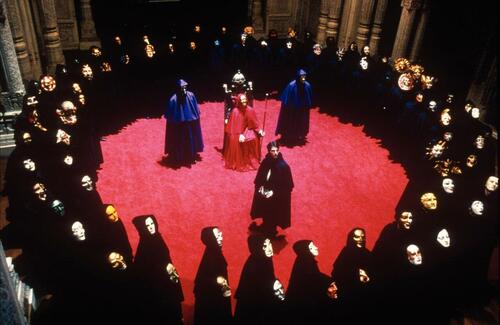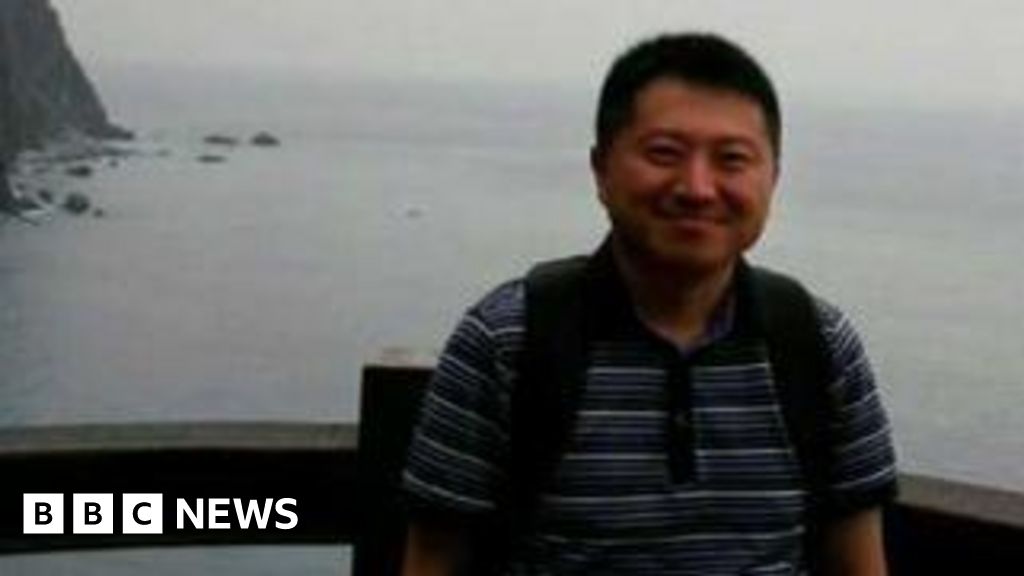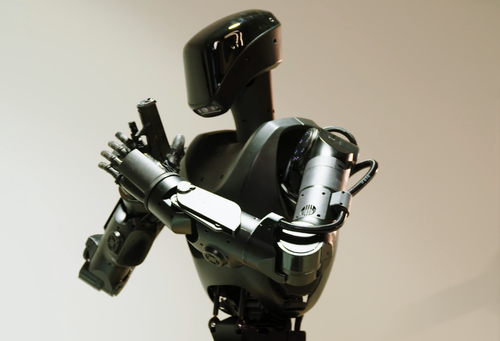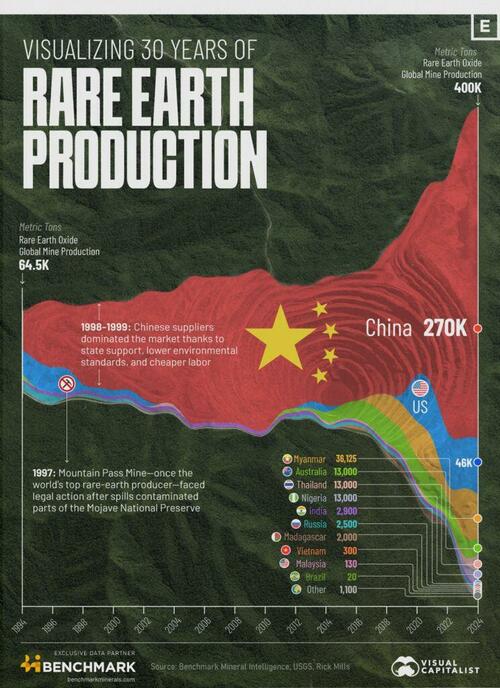Episode 5: “Feeding Your Mind”
Madison and Maycee Holmes
Want more Holmes?
Find them on Substack, Rumble and Youtube
Also you can contact the Holmes sisters directly at Connect@at-home-with-holmes.com
Get the Truth! Exclusive Interviews and News that mainstream media won’t report. https://ironwiredaily.com
Protect Your Assets from the Coming Economic Collapse. Buy precious metals at wholesale prices right here in Canada. https://info.newworldpm.com/154.html You can even transfer in your RSP. New World Precious Metals. You will also be supporting our efforts to bring Canadians the truth. We do receive a commission on purchases made through our affiliate link.
Get Sound Financial Advice. Adrian Spitters is a personal financial planner and author who successfully predicted both the dot-com crash and the crash of 2008, and also has access to many investment opportunities that other financial planners do not.
Adrian Spitters, Financial Consultant
Financial Advice for the Coming Economic Collapse
www.adrianspitters.com
adrian@adrianspitters.com
(604) 613-1693
Find and Join your LOCAL Freedom Community. We are building in-person freedom communities across Canada at https://freedomcoms.org. Joining is free and only takes a minute.
Get a truly Secure Phone. Above Phone! Purchase price includes a 45 minute online personalized orientation session. Stop the government and corporations from spying on you. https://abovephone.com/?above=101. Use code IRONWILL25 for $25.00 off any phone.
(0:00 - 0:07) Hi, I'm Madison Holmes. And I am Maycee Holmes. And you're watching Holmes Squared. (0:08 - 0:12) I forgot to pull up the picture. There you go. Holmes Squared. (0:13 - 0:19) Yay. Yeah. Those are good bloopers that we're not going to filter out. (0:20 - 0:27) I don't know how Will will feel about that. OK. Jinx. (0:27 - 0:28) You go ahead. OK. OK. (0:30 - 0:43) For today's conference, we've been picking the topics. You know, everybody's like, oh, what are we going to talk about today, girls? We've been picking it based off of just what's been going on in our lives because we are busy gals. We're a busy clan. (0:44 - 1:13) So whatever happens to be within our research, our daily research, as you guys know, we this is just a part of our routine. What is in our zeitgeist, our Overton window? What's in our Overton window right now? And this week, me and Maycee have we watched the movie The Big Short, me, Maycee and Dad, which is on the 2008 housing crisis. And so we started digging into some finance resources. (1:13 - 1:44) But there's a couple more videos that both me and Maycee want to do to enrich the conversation. So we're going to postpone that till next week, which leaves the other thing that's currently in our Overton window is, as you guys know, on our lovely book study, our substack @HomeWithHolmes, we do a book study on The Master and His Emissary and our next segment. Chapter 10, I believe, is coming up. (1:44 - 1:48) Yep. In a week. Just under now. (1:48 - 1:58) So we started reading the 10th chapter so we can prepare. And they he had a section. It's on the Enlightenment. (1:59 - 2:18) But more specifically, rather than just the general Enlightenment, is thinkers from the Enlightenment and what shapes their mode of attention, as we call it. And one thing that he brought up that I found I clung to, partly because it resonated so much. It's like how everybody says Peterson had been. (2:19 - 2:48) They told him things that they knew all along, but they just didn't know how to put it into words. He talked about boredom and the way he described it is how I felt about boredom for my whole existence ever since it was actually when we were little. And I was wandering around the house and I was like, Dad, I don't know what to do. I'm bored. And Dad said, You're bored. So, yeah, I don't know what I have nothing to do. (2:48 - 2:57) He's like, There's nothing to do. There's absolutely nothing in this household you could do. You couldn't read. You couldn't cook. You couldn't. And he just listed a bunch of things. (2:58 - 3:07) And then it clicked in my brain. Oh, it's not that there's nothing to do. It's I don't want to do the things that I have been doing. (3:07 - 3:18) So I need to find out of the list of things he gave me or out of what's in my household. What is something I want to do? So boredom wasn't this. Boredom was a choice. (3:18 - 3:31) It's really what dawned on me. And I think part of the reason why I wanted to talk about it is because boredom is something that is really prevalent in our generation. This I'm bored. (3:31 - 3:38) I don't know what to do or boredom eating there's I'm bored. I'm going to go hang out with my friends. It's all of these things. (3:38 - 4:07) So that's why I thought we should talk about boredom and then connect that mental mode of attention, which hemisphere, which we know to be the left to do that thing, because it's also this. Inauthenticity of not embodying life. Right when you're bored, it's maybe you can jump in on this if you feel the same, but whenever I was bored in the past, it did feel as if time it stopped moving. (4:07 - 4:16) You know, you're suddenly in the stagnant. Point in existence, there's no future, there's no past, and you're just lost. I don't know what to do. (4:17 - 4:38) And knowing the hemisphere work and talking about inauthenticity and authenticity, some people get bored of the routine, but that's because they're no longer embodying it suddenly seems like this repetitive, constant state that never changes. Well, that interpretation of time and boredom are parallel. And to me, that's just the left hemisphere now. (4:39 - 4:55) But I didn't associate boredom with the left hemisphere until he explicitly said it. That's just how I always knew boredom to be. So I figured that would be a nice way to get people, especially our age people, to start rearranging their brain. (4:56 - 5:33) Yeah. So I guess as an added, we like we do the book studies right now on McGilchrist's work, but we'll be doing more on other books as well. But when it comes to us trying to, I guess, navigate questions of our age and of our generation through Gilchrist's work, like because some some people might ask, like, why is it important to kind of be able to differentiate whether or not that's my right or left hemisphere? Because some people, they kind of just go like, oh, that's nice. (5:34 - 5:56) And like because they're not there to them. They're just living their life. They're not really associating it with any sort of certain mode of attention the way that we kind of bring forward it as trying to keep it accountable to what are you doing? Because when we're talking about the hemispheres, everybody has them and they do. (5:56 - 6:30) There's just there's studies that go out based on magnetic inhibitions of either hemisphere or the other. This has happened over times of what are they called? Like the when they split the corpus callosum in half. I don't know the exact procedure. Oh. Yeah, I don't remember the exact procedure of what the technical term is called. But regardless, there's the people used to do it for seizures and people with epilepsy. (6:31 - 7:12) So and it's not very like obviously cutting a brain in half doesn't seem like the most nice thing to do. But we have a lot of just evidence. And by we, I mean McGilchrist in his book, just trying to pan it out as to why should you really care about which hemisphere is doing what? And I think that when we're tying it into the mode of attention and then the accountability towards how certain functions and certain ways of how you do things can change, depending on where your brain's at, is how we hold ourselves accountable. (7:12 - 7:19) If that makes sense. Well, it affects our daily life. Like being bored affects you. (7:20 - 7:28) When you're when you get left off on something, when you just can't. You're fixated on this one thing. Maybe it's a relationship. (7:28 - 7:41) Maybe it's food. Yeah, that affects you. Because there was something someone said about whether or not the hemisphere work is descriptive or proscriptive. (7:41 - 7:57) And my brain instantly thought both. Like it's like some people go like it's a descriptive thing to help you navigate the world or it's a proscriptive thing to help you navigate the world. But I was like, I feel like it's both like at the same time, if that makes sense. (7:58 - 8:13) So when we're thinking about it, it's like, yes, you are. You're your own self-governing agent, sort of. And what I mean by that sort of is that there is you're not never. (8:13 - 8:27) You're never not in the middle of something. You're never not in the middle of a context, in the middle of standing in the midst of something which is kind of connected to everything. Yeah, well, not just kind of it is right. (8:27 - 8:48) But in part. So that's why when we're even thinking about that in the relationship with your own hemispheres and yourself, it's like, yes, it's not like your brain controls you, but it's not necessarily that you control your brain either. It's a bit of the wishy washy of trying to figure out how to how to understand both. (8:48 - 8:55) But it's so hard because you're using your brain while trying to understand your brain. Right. So that's why there is that reciprocity. (8:55 - 9:22) So going back to the topic of what we have been navigating in the next chapter, since we're on to our next book study with boredom being the left hemisphere, there is there is a genuine sort of inauthenticity when it comes to the left hemisphere and it deals with things that are familiar. And I don't mean familiar as like individualistic, but I just mean it would deal with what's repetitive. Yeah. (9:22 - 10:20) And so when you're talking about routine and some people get bored of it and they're just not it's we call it you're just not embodying it. And what we mean is that like you're again, you're re-experiencing your experience. So Maycee, to put it in plebeian terms, are you capable or have you been able to watch a movie and then could you watch the same movie a year from now? Yes. OK, how come you don't get tired of it? So doesn't it all of the details, are they straight in your mind? Does it never change? How how come you can just watch the same movie a year later or maybe a half a year later? Because you're a living creature that can embody different things, like actually the same things in different ways. So it's like, sure, the movie might be the same plot. And you know exactly what's going to happen. (10:20 - 10:27) And you can predict it if you wanted to. But you're the thing that's engaging with it. And you're still a living thing going through life. (10:27 - 11:03) So if you're sitting down and you're watching the thing, you might be like, oh, I have more things to relate to with this movie now than I did before, because I'm embodying the movie still. It's not about, well, I've seen it so many times. And like, you know, lessons learned. That's it. It's like, no, any any encounter with anything can be you can learn as much as you I guess you learn, if that makes sense. Yeah. Yeah. We, for example, we just watched the big short. And this was, I think, my third or fourth time watching it. (11:03 - 11:30) In fact, actually, the last time we watched it for context to everybody that's watching, we watched it less than a year ago is when we watched it. So when Maycee had asked to watch it again because we were trying to understand finances better, mom was moaning and groaning because she thought, oh, we just watched it. I remember the whole thing. I don't want to do this again. So we picked it on a night where she wasn't there. And then I felt the same way. (11:30 - 11:36) Sort of. I was I was like, oh, it was pretty fresh in my mind. But me also learning more about finances. (11:37 - 12:04) We watch it. And because we had been listening to podcasts and doing more reading on the whole financial realm in relation to that movie when we watched it, even though it was Maycee's request, because she knew she hadn't fully understood it the first time or first two times we watched it. Even I on the third or fourth went, oh, hey, there's some new stuff in here, even though there's not. (12:04 - 12:10) But there's new stuff in my head. So that that makes sense. It's it's not that long. (12:10 - 12:24) But because you've learned something, actually, isn't that what they said about? That's what dad always said about the Bible. People call the Bible the living word. And then dad, he in his old church days, he threw the Bible on the floor and said, it's just a book. (12:25 - 12:33) But I'm the living word because every time the living thing. Yeah, I'm the living thing. So every time you go back, you know, people said, oh, it's just it brings out more. (12:33 - 12:47) It's because you you learn more, you become more. And then you can pull out more morals, more lessons, more stories, more meanings that you would have potentially overlooked the first time. And that's important. (12:47 - 13:03) That lesson is important for. Everyone, because everybody has the routine, the life is the grind majority of the time, you know, people. Yes, there's things like vacations and there's birthdays and there's Christmas. (13:03 - 13:15) There's those are big events that families get together. And those are they stick out in your mind. But majority of life is the Monday through Friday working nine to five. (13:16 - 13:36) That's that is the routine. And then people sometimes you can get washed out and burnt out even in freedom movements to or political movements, whatever organizational activism that you get involved with. People have gotten tired of the grind because it's hard. (13:36 - 13:46) It's not always rewarding. Sometimes it's just the bare minimum to get by. But trying to reembody that, I think, is absolutely crucial. (13:47 - 14:09) What are your what are your thoughts? No, I think it's like. I would I would resonate with the idea that when you're doing the whole I'm bored thing, like then you're just not thinking hard enough or valuing hard enough what it is that you need to be doing to make the world a better place. Like, I just think you're not in service mode. (14:09 - 14:32) Then you're kind of just lingering in a self-centered, again, just more left hemispheric proclivity state of being where it's just like I'm not I'm too focused on me right now in my world instead of actually reaching out for something that is more than yourself. And because when we're doing what we're doing on a regular basis, it's like we'll go to work and I'll come home and I got to water the plants. And I got it. (14:32 - 14:44) And I got to mean you will study for any topics that we're just studying on right now. And then we're trying to test ourselves. And then if mom needs help with dinner, then we'll do that, too. (14:44 - 14:55) It's like we don't stop. And that's a lot. Whereas some people come home and then they'll like either maybe sit down and watch the TV or they'll go play video games or something like that. (14:55 - 15:13) And I just feel like for me. I don't want to waste that potential that I have to continue to pursue making myself better. And I know that some people would look at us and they have said that's like you need to learn the art of relaxation. (15:17 - 15:25) Yeah, which I mean, I've heard the argument and I don't disagree. They assume that we haven't. Again, I think I don't know if we've told everybody here. (15:26 - 15:31) We sit down and watch movies with the family every night. It's dinner and a family movie. That's what we do. (15:31 - 15:43) Yeah, we sit down at eight o'clock to eat our dinner because we're psychos. But, you know, there's so many hours of the day and so much to do. But as a fan and for me, watching a movie is relaxation time. (15:44 - 16:00) I would never sit down to watch a movie on. I mean, even then, though, you, me and Soph, when we're together and we have a basket of laundry, we'll sit down and watch a movie and fold laundry together. So we're still doing something productive, like folding the laundry. (16:00 - 16:08) Yeah, yeah. But that's that's a good balance. And even when we watch movies, you know, I it's relaxing for me by my standard. (16:08 - 16:23) Does that mean to say that my version of relaxation is turning my brain off? In part, yes. Because, you know, when I'm folding laundry, that doesn't take brain power. But when we're watching movies as a family, we'll talk about it. (16:23 - 16:43) I was going to say, like, we still use our brains when we're trying to even watch a movie. And like even today, I was I you were juicing what's the word celery for a liver cleanse, which we can talk about as well, because this is something we're going through. But we were you were just doing that. (16:43 - 16:54) So I was like, oh, I have some time. So I was just reading on some financing because, again, me and her still trying to get our heads wrapped around. And we'd like to put considered care into how we want to present it. (16:54 - 17:07) So that's why that'll be a next week project. But I was just sitting down. And I was like, it's nice to just sit down and keep learning and reading the things that I want to learn and read. (17:07 - 17:19) I mean, it was still really confusing to understand some of it. I was like, uh, but but it's still nice every once in a while. Like, I feel like a vacation sometimes is literally just getting to sit down and read. (17:19 - 17:30) And that's something that's interesting, too, is we've met people that are like they are heavy travelers and they really like to go on vacations. Yeah, and that's fine. But I'm like, hey, I can eat food. (17:30 - 17:47) And don't get me wrong, like delicious food, depending on where you go. And I can like, I guess, spend time with my family in a different location. But there's some people who they go on vacation and they're literally like chilling on a beach and they pop out a book still that they would have popped out if they were at home. (17:47 - 18:05) It just so happens that now they're in a very, very Zen location, which is amazing. Right. So even when we go camping as a family, those are the moments where last, maybe not last camping trip, but two times ago I brought Coraline because I love the movie, adore the movie. (18:05 - 18:14) And I didn't realize it was based off of a book. So I brought Coraline, which is not it's not Matthew Aratt. It's not a historian, the real history of Canada book. (18:14 - 18:29) But it's a it's another book that I don't usually make time to read. But because you're on vacation, you are camping, which is our family's vacation. You make time to do those activities, spend time together. (18:29 - 18:45) And then in the moments when we're on on the drive or in the mornings when the coffee's being brewed, so everybody's waiting. Those are the ones where you sit down and just take a moment to to read it. And it's easier, but it's still doing something. (18:45 - 19:06) It's still putting more things in my brain that I wouldn't have otherwise. Mm hmm. Yeah, like I feel like that's the overall mode of attention, mode of attention that when it comes to the boredom topic, is that like that's my biggest criticism for people that sometimes they just come home and they start like gaming or something like that. (19:06 - 19:30) Like to me, I just feel like there's so much that you could be learning. Like if you don't know how to cook, then you could be maybe deciding I'm going to volunteer to make my family dinner. Right. You said something that's interesting, though, because you said my family and you said service. And I'd never thought of it that way. Like to me, I was just I thought, oh, if you're bored, you're uncreative because you can't think of something to do. (19:31 - 20:01) But you're framing it in a manner that it's it's less about just finding anything to do because not doing something isn't. You know, you could productivity for the sake of productivity, for the sake of productivity is not productive. Yeah, exactly. Exactly. So you're framing in a manner where it's finding something to do that if you don't know what to do for yourself, other like cooking for the family. Some people might not want to like cook a meal for myself is like, but cooking for others. (20:01 - 20:35) And then suddenly the anxiety goes up because now there's consequences. What if they don't like that? What if they don't? So even doing the dishes and doing the plants, that's not just for you. You're trying to feed the family with plants and stuff and you're making my life easier. So that's. That's an interesting frame of light to get people to think skills, not just for me, but for other people, what can I help with? What is there something? I'm sure there's chores around the house. There's there's always little things like that, but I've never framed boredom in that manner before. (20:36 - 21:04) Yeah, I feel like then that's a bit more of a right hemispheric ping where it's like you're more considered of the other instead of just yourself. And there is more of other people than there is of me. Well, I my motive of attention when it comes to just solving the boredom crisis is like, where am I? The most like useless human being in which domain? Because I will pay attention to people who can do things that I can't do. (21:04 - 21:11) And it bothers me so much. I will look at like many knows how to make sourdough bread. And I am like, OK, but it wasn't. (21:11 - 21:16) It was only until Maddie taught me how to make sourdough bread. She just took the initiative. I was like, I'm going to make sourdough bread. (21:18 - 21:22) And then she makes it. I'm like, well, I'm bothered. I don't know how to make sourdough. (21:23 - 21:39) So then I was like, well, can you teach me? So that way, in times of need where you're like, I need someone to take over, I can do it. I'm still not quite that good yet. But but that's that's what I mean is like sometimes I'll just look at other people and if they can do a thing that I can't do, then it just like gripes me. (21:39 - 21:43) And I'm like, well, I should know how to do that. Like cooking's not my forte. Right. (21:43 - 21:55) And I'm like, I mean, you make a mean breakfast, though. Your breakfasts are so good. But I really want to learn how to make like how do you play with spices in a creative, artistic way? Because it's literally an art and our dad is like the king at cooking. (21:56 - 22:08) And so I will look at him and go like, you know, like I know everybody has their designated jobs and that's good. So it's good. That's how you kind of keep our own little commune that we have going because everybody has their own role to play. (22:08 - 22:34) But and there's so much like sometimes it really is what coming back to that relaxation thing where it's like, OK, you just don't have the the time to try and dedicate to this thing, which is fine because you have so many other things that hopefully are contributing towards the greater gestalt. But if you can every once in a while, like me and so we'll just make dinner for the family and I'm like, OK, that's good. Like just something something. (22:35 - 22:55) It's not a lot, but it's something. Yeah. Yeah. And I I want to give more homage. You said dad is the king of cooking, and I know Will will appreciate this because Will is also he's the he's the cook of his household. And one thing that you say that because he literally watches our segment. (22:56 - 23:02) Yes, he's he's watching. And we've we're we're friends with the with the man. You know, he's had us for dinner. (23:02 - 23:13) We've had him and his family for dinner. So we've got to experience one another's cooking. But on this, Maycee alluded to the fact that right now our whole family of seven individuals is doing a liver cleanse. (23:14 - 23:30) And we have very much appreciated and been more surprised. I miss cooking food. No, that's not the point. That's not the point. That's not the point. But I impulsively want to say no, it's it's we're not starving ourselves. (23:30 - 23:41) The liver. But the point is on a liver cleanse. And this is connected to boredom because boredom is, as we've kind of discovered, this is this is a mental choice. (23:41 - 23:58) It's a decision. And the thing with mental choices is that sometimes making a good mental decision is hard because maybe you don't have great mental health. And that is very much connected to your physical health as well. (23:58 - 24:06) You know, sometimes if you're bored, you go and you can't think of anything to do. You just go and snack. You know, you go and boredom eat that. (24:06 - 24:16) Everybody knows what boredom eating is. You say it is a thing. And being on not that our family is particularly big on boredom eating. (24:16 - 24:38) We were pretty focused and dedicated to learning about our bodies and our health, because even as studies of the brain, the brain is connected to the body and the body to the brain. So if you will, even though we learn about our brain, you still have to feed it the right things in order to function properly. So we're on this liver cleanse. (24:38 - 24:52) It's very strict. So you requires more discipline because you have to follow a schedule and you have to follow restrictions. So there are certain things where it's like, OK, you're only allowed certain starches. (24:52 - 25:11) And then dad, who we've heard his stories all the time about him being a chef's assistant back when he was in his younger years. But then being on this diet and having very little variety. Yeah, he starts. (25:12 - 25:17) We're allowed potatoes. Oh, I'll make fries. I mean, but no, you're not allowed to fry them. (25:17 - 25:26) No, which you're. So there's none of that. So he found a way to base them in garlic and then salt and pepper. (25:27 - 25:37) And I didn't even know he could make fries. But it's little things like that where you appreciate even though we all take you can take it for granted. He's a good cook on a regular basis. (25:37 - 26:30) But even on circumstances like this, when you've been limited and it seems like the world around you is like so boxed and you have this constant routine and the state of being that you have to follow and it seems so unchanging and consistent that there are still these little surprises and nuances that make it better to embody and stuff like that. I think that the something I wanted to bring up that it was cool because you were reading on it is the fact that why are we doing a liver cleanse? We're doing a liver cleanse because we weren't necessarily unhealthy before. It was just mom was looking into it initially and wanting to remove some toxins because she's been doing some reading as to how a lot of health can be linked and traced to an improper functioning liver. (26:31 - 26:43) I won't go deep into it because we don't have time. But what I will say is it's cool because even Maddie learned this in a book. She was reading the ancient cultures or like ancient societies that a bit were more carnivore in their diet. (26:43 - 27:07) Even they would take breaks to give their bodies a bit of a slowdown and they would get off of it for a bit. So that way their system can kind of get those. What like hard to process things off the liver, like any sort of lumps or stuff like that just to give them their body a break. (27:07 - 27:25) And I think that that was really cool that like it's something that is meant to be a part of the routine. And it was cool because Kyle was the one who said it's almost like you need a rest day when you're working out and it's almost like a rest diet. You don't work out every day of the week, right? You take the weekend off usually and then you can work the week. (27:25 - 27:27) And yeah. Yeah. It's like a cool rest diet. (27:28 - 27:32) And I thought that was a good way of putting it. No, that is a good way of putting it. Yeah, that's exactly it. (27:32 - 27:56) And it's just things like so you could have that. And that's relevant because it's analogous to the whole when you start to really load things on your plate, you know, realize, okay, maybe I am a bit, I indulge in the I'm bored thought lots. How do I pick up more? And then you get to places where me and Maycee find ourselves. (27:57 - 28:05) I almost wish I could say that a bit more often, like have those moments where it's like, oh, I'm bored. I have nothing to do. But the reality is we always have something to do. (28:05 - 28:24) But we do take even during this liver cleanse. There was a day me and Maycee had another 30 things to do, but I wasn't mentally there to do them. And Maycee says because the weather was nice and then it snowed the next day. (28:24 - 28:28) Figures, Calgary. But it was nice this day. And she said, I'm going on a walk. (28:28 - 28:36) And I was like, yeah, that's that's what I need. So even though walking, it's technically productive. I didn't go on the walk because it was productive. (28:36 - 29:01) I went because I wanted to a moment relaxing in the sun, taking in some vitamin D with my sister. And I knew that that would help that would replenish me and revitalize me to again, get back to the diligence. So even that in itself, certain relaxation can be productive depending on the mode of attention, the way that you interpret it and look at it. (29:02 - 29:45) Mm hmm. And like, I guess we'll do a little last thing, because I know we're reaching our mark, but when people are talking as well, when it comes to even the freedom movement and they're having some hard times sometimes with the fight, it's like, we're young and you could say we're like, what is it young and full of vigor? I was going to say vinegar because I was thinking of the other saying, which I don't need to iterate. But well, when it comes to those of you as well, who are our older viewers who may be feeling as well, there's a bit of that getting tired of the fight kind of thing, and maybe feeling a bit more black peeled. (29:45 - 29:59) I think that there's always still something for you to learn though, too. It's like, even our dad's a classic example where he's been doing like a lot of research over the past five years. And I know people have been in this a lot longer than that. (30:00 - 30:26) So he's still playing catch up, but he's done quite well at playing catch up and there's still so, so much to learn. Right. And it's the same thing for those of you who've been in the game probably for a long time. It's like, there's still new things coming out. And yes, they may be the same pattern and familiar, but that doesn't make the embodiment any less important. It's like, it's still, it's frustrating that it's still happening, but that's why we're trying to get our thinking caps on. (30:26 - 30:40) And that's why we like people like Matthew, where it's work. Cause we see him as the type where he's actually like solution oriented. It's like, what are some systems that would actually be good systems that we could potentially start posing to make ourselves better. (30:40 - 30:57) And then figuring out the logistics, it's like trying to plan anything takes logistic brains and logistic minds. And honestly, like you can't be tired if you're one of those people you are trying to figure out how to actually like physically make the change in the ideas. The ideas are hard to come by. (30:57 - 31:08) You have to work for the ideas of how to make things better, but then you have to work on how to actually implement it. And so there's so, so much to still continue to keep trying to push towards. So. (31:08 - 31:35) Yeah. Even, even us as a family, I mean, we look like we've been here forever if people coming in here now, but even this whole trying to be healthy thing, uh, before we only started this kind of when COVID took off and, you know, we couldn't go to restaurants anymore cause we started, we did after Peterson, 'cause mom and dad saw Peterson do the carnivore diet to heal some of his numerous ailments. And then we went on it for two years. (31:35 - 31:40) But before that point McDonald's twice a day. Oh yeah. We were very unhealthy. (31:40 - 31:58) Yeah. Maycee was 15 I think when we started carnivore. So really this, the mental journey, including the health journey, you feel like you've been there forever, but we were once like many people still are and they, they don't pay attention to what they put in their bodies. (31:58 - 32:07) And some people are, don't pay enough attention about or don't know what to pay attention to, to put in their minds. And, but that's okay. Yeah. (32:07 - 32:18) And it's reciprocal relationship. You know, there are many older folk. You're watching me and Maycee, some 20-year-olds, um, with open minds thinking you can learn something from us. (32:18 - 32:50) But we like trying to learn from our dad or still also keep updating, keep pursuing. 'Cause we're trying to learn from you. Um, a lot of the oligarchs have told young people not to trust anybody over 30, you know, don't listen to your elders, but there's, you guys got time and experience. And even though we're young and dumb, uh, there's, there's a new lens that we can put on it. A new mode of attention, you know, it's, there's not a lot of people know about the brain, but that's what we have time to study. So let's, that's, that's why we share and build one another up. (32:50 - 33:32) 'Cause everybody knows something that somebody doesn't. That is true. So, um, because we're two minutes over time, I'll just say, sorry, Will. Um, I'll just say that, um, we have our next book study coming up. So you guys can stay tuned for that on our sub stack. Um, and then, um, yeah, we mentioned it twice already, but we are going to be trying to, if anybody wants to participate in this email us, our email is, I think we'll post. Yeah. I didn't know if I wanted to mention that, but like we can put it out there. It's just cause we are basically almost two chapters away from finishing the book. (33:32 - 33:56) So I know some people might feel discouraged and not want to really jump in when you're at the end of a book, but there's still so much to learn like in the works, um, because it's divided into two parts. And right now it's about culture. And like Maddie alluded to, he's talking about things like the, um, the enlightenment and the reformation and era and, uh, the time of Greece and just how the hemisphere is playing to that. (33:56 - 34:19) And so even if you started in the bottom half, I already know that you would learn something that might motivate you to want to read the first, um, or you can play catch up if you want to, and just go check it out. But you guys are welcome to join. If you are interested, you can go into our sub stack and email Connect@at-home-with-holmes.com Connect@at-home-with-holmes.com. And, uh, you can learn anything from those book studies. (34:19 - 34:31) I really enjoy them because so many people put in so much of their valuable, I guess, ideas and mindsets of still where it takes them. So, yeah. And then, um, uh, yeah. (34:31 - 35:05) And last thing I was going to say was just that we will probably be touching on the finances, um, for our next ones. Cause again, apologies. We wanted to do it today, but we were just like, there's still so much and we want to really put some more careful thought into it. And we only have 30 minutes. So that means we need to make it dense. So that'll probably be for next time. So stay tuned for that. And thank you for watching. Yeah. This has been Holmes. Holmes Squared. Yeah, Holmes. See, you did what I did. I did. Holmes Squared. Holmes Squared. Thanks everybody. Yeah.



















